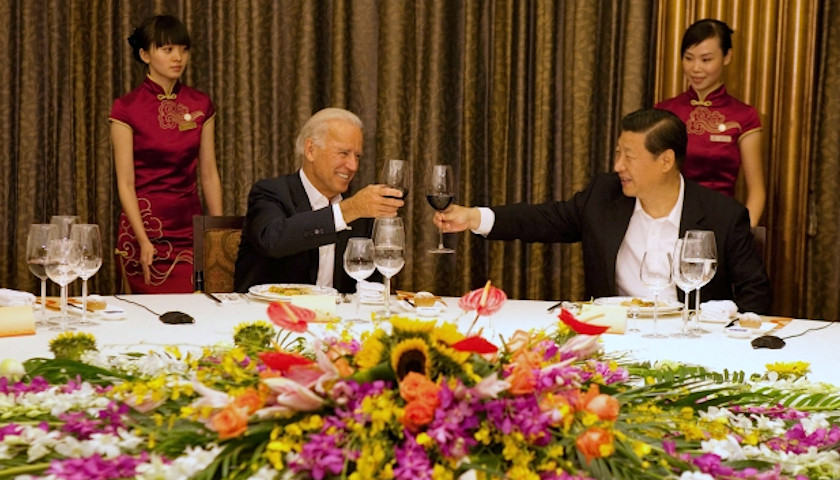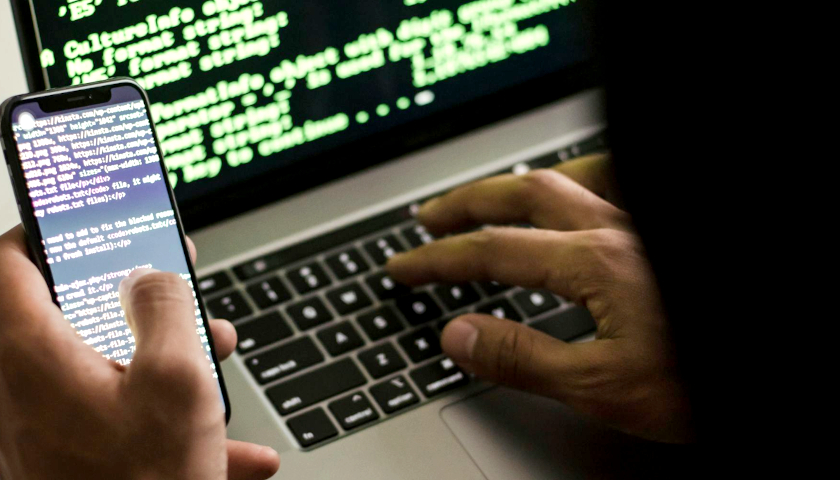by Robert Romano
President Joe Biden is signaling a pivot back to China with his most recent choice to sit on the National Security Council, former Assistant Secretary of State for East Asian and Pacific Affairs Kurt Campbell.
Campbell wrote the book, “The Pivot: The Future of American Statecraft in Asia,” where he argued, “While the Asian Century detoured to the Middle East in the years following the September 11 attacks… the United States has led a ‘Pivot’ (or ‘rebalancing,’ as many prefer) of American diplomacy toward the nuanced yet demanding tasks of engaging a rising Asia. The Pivot is premised on the idea that the Asia-Pacific region not only increasingly defines global power and commerce, but also welcomes U.S. leadership and rewards U.S. engagement with positive returns on political, economic, and military investments.”
In it, Campbell advanced two arguments: “First, that Asia should be placed more centrally in the formulation and execution of American foreign policy” because it often “played a secondary role behind more pressing global or regional concerns in Europe during the Cold War and the Middle East during the war on terror.” And: “the United States should pursue a comprehensive and flexible strategy in Asia… [that] will require that we move away from the kind of ‘China first’ or ‘G-2’ approach that has often dominated U.S. policy toward Asia and will instead involve embedding China strategy in a larger regional framework, one that advances relations with countries across the region, including China.”
Remarkably, Campbell downplayed the possibility of Chinese hegemony in Asia: “Although China stands tallest in Asia as the region’s largest economy, its growth is slowing even as other major powers, such as India, are surging forward. Looking out into the period ahead, it seems premature to conclude that Asia will fall under inevitable Chinese dominance…” instead arguing for an “unsteady balance of power” in the region as an objective and likely outcome.
He wrote that in 2016. And so, let’s see how things played out. China is once again growing faster than India, according to World Bank data. It has broken the 1984 Sino-British Declaration treaty to keep Hong Kong autonomous until 2047 with its new national security law. It still has not been fully transparent about the origins of the Covid pandemic that was unleashed upon the world in 2020. And it just repeatedly breached Taiwanese airspace to test the new American President Biden.
In his book, Campbell also argued in favor of the Trans-Pacific Partnership (TPP) and more broadly in favor of trade liberalization, which as a part of economic ties he called a “significant component of the Pivot”. And so, immediately, Campbell will be one of the leaders in a host of advisors who will be urging Biden to finish what former President Barack Obama started with the TPP.
In November, Campbell delivered a speech at the China Development Forum calling for “on China, more directly, there is recognition about rebuilding the bilateral institutions… [and a] need to focus on mechanisms that can prevent and deal with unintended crises or escalation”.
Campbell pointed to trade as a missing element of the Biden plan: “The key here, the missing piece, is what is going to be the trade strategy. There is a need — a desire — across the region to see a coherent approach. And I believe that the Biden administration will place that out more generally.”
While Campbell’s interest and renewing American attention toward Asia is certainly welcome, building on former President Trump’s focus on the region, downplaying the threat posed by China is not the situation we find ourselves in, nor is reopening the TPP appear to even be on the same page with President Biden.
On Dec. 2, 2020, Biden told Thomas Friedman in an interview, “I’m not going to enter any new trade agreement with anybody until we have made major investments here at home and in our workers,” an apparent reference to restoring the Trans-Pacific Partnership.
And on the 25 percent tariff on $250 billion of goods and 7.5 percent tariff on the remaining $300 billion of goods that was levied by former President Donald Trump, Biden said: “I’m not going to make any immediate moves, and the same applies to the tariffs. I’m not going to prejudice my options.”
Finally, Campbell was until Aug. 2020 vice chairman of the U.S.-China Strong Foundation that partnered with Chinese government-led Confucius Institutes at American universities for ostensible cultural exchanges. It also led efforts under the Obama administration to send U.S. students abroad to China and to study Mandarin.
The same month Campbell left the foundation, the State Department labeled the Confucius Institutes to be a foreign mission of the Chinese government: “Today, the Department of State designated the Confucius Institute U.S. Center as a foreign mission of the PRC, recognizing CIUS for what it is: an entity advancing Beijing’s global propaganda and malign influence campaign on U.S. campuses and K-12 classrooms. Confucius Institutes are funded by the PRC and part of the Chinese Communist Party’s global influence and propaganda apparatus.”
Under 22 USC § 4302(a)(3), a foreign mission is “any mission to or agency or entity in the United States which is involved in the diplomatic, consular, or other activities of, or which is substantially owned or effectively controlled by… a foreign government…”
Anders Corr, publisher of the Journal of Political Risk, told the Washington Free Beacon that the U.S.-China Strong Foundation could be a Chinese Communist Party front group: “The indicators suggest that the U.S.-China Strong Foundation could be a [Chinese Communist Party] front group, or so heavily influenced by the CCP as to be tantamount to a front group,” said Anders Corr, an intelligence analyst and publisher of the Journal of Political Risk.”
As reported by the Beacon, “In August 2017, the U.S.-China Strong Foundation appeared to celebrate the founding of the People’s Liberation Army on its Twitter account, writing, ‘Today is the 90th anniversary of the founding of China’s PLA!’ and urging followers to read about a commemorating address by President Xi. The group also posted multiple favorable Twitter messages about China’s Belt and Road Initiative, a global infrastructure program that U.S. officials have decried as a national security risk.”
So, one of President Biden’s top advisors on Asia and China, reporting to National Security Advisor Jake Sullivan, appears to be a China dove whose organization was partnering with what turns out was a Chinese foreign mission and who thinks it is unlikely for Beijing to seek regional hegemony in Asia despite all evidence to the contrary. Does President Biden agree?
– – –
Robert Romano is the Vice President of Public Policy at Americans for Limited Government.





